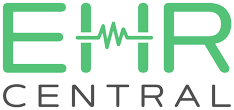HIPAA, MACRA & More: How to Stay Compliant
In healthcare, compliance is more than just a legal requirement, it’s essential for protecting patient trust, ensuring data security, and avoiding costly penalties. Regulations like HIPAA, MACRA, and others create a framework for patient privacy,

quality reporting, and operational accountability. But keeping up with evolving requirements can be challenging for busy practices. Here’s how to navigate the compliance maze effectively.
Understanding the Key Regulations
- HIPAA (Health Insurance Portability and Accountability Act)
HIPAA safeguards patient health information (PHI). Compliance requires:
- Secure storage and transmission of PHI
- Access controls and authentication measures
- Employee HIPAA training
- Breach notification procedures
- MACRA (Medicare Access and CHIP Reauthorization Act)
MACRA shifts healthcare to value-based care. Under its Quality Payment Program (QPP), providers must:
- Report quality measures through MIPS or APMs
- Focus on improving patient outcomes
- Implement certified EHR technology
- Other Key Compliance Areas
- HITECH Act: Strengthens HIPAA with stricter breach penalties
- CMS Regulations: Guidelines for billing and Medicare/Medicaid services
- State Laws: Local privacy and medical record rules
Challenges in Staying Compliant
- Constantly changing rules and updates
- Limited in-house compliance expertise
- Integration of new technology without compromising security
- Pressure to meet both quality metrics and patient care standards
Best Practices for Ongoing Compliance
- Invest in Staff Training
Regular training ensures all team members understand their compliance responsibilities. - Implement Strong Cybersecurity
Use encryption, multi-factor authentication, and regular system audits to protect patient data. - Keep Documentation Updated
Maintain accurate records of policies, procedures, and audit trails for inspections. - Leverage EHR and Compliance Tools
Modern EHR systems with built-in compliance features help track quality measures, reporting deadlines, and HIPAA safeguards. - Conduct Regular Audits
Internal audits help identify vulnerabilities before external inspections or breaches occur.
Why Compliance is Worth the Effort
Beyond avoiding fines, compliance builds patient trust, enhances care quality, and positions your practice for long-term success. By combining technology, training, and proactive monitoring, healthcare providers can meet regulatory demands without compromising patient care.
Final Tip: Compliance is not a one-time task; it’s an ongoing process. Partnering with experts or leveraging compliance-focused healthcare solutions can help you stay ahead of the curve.





